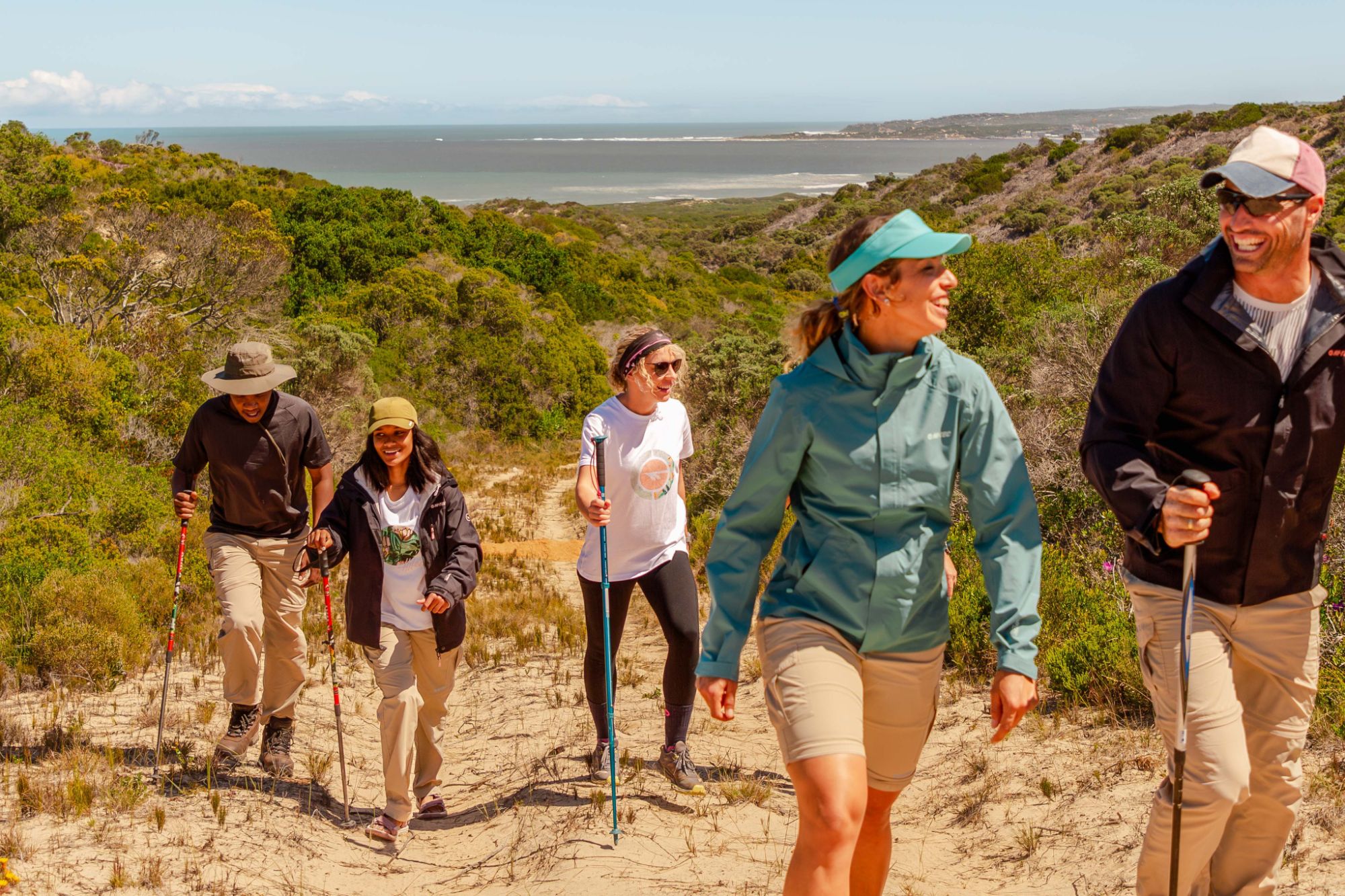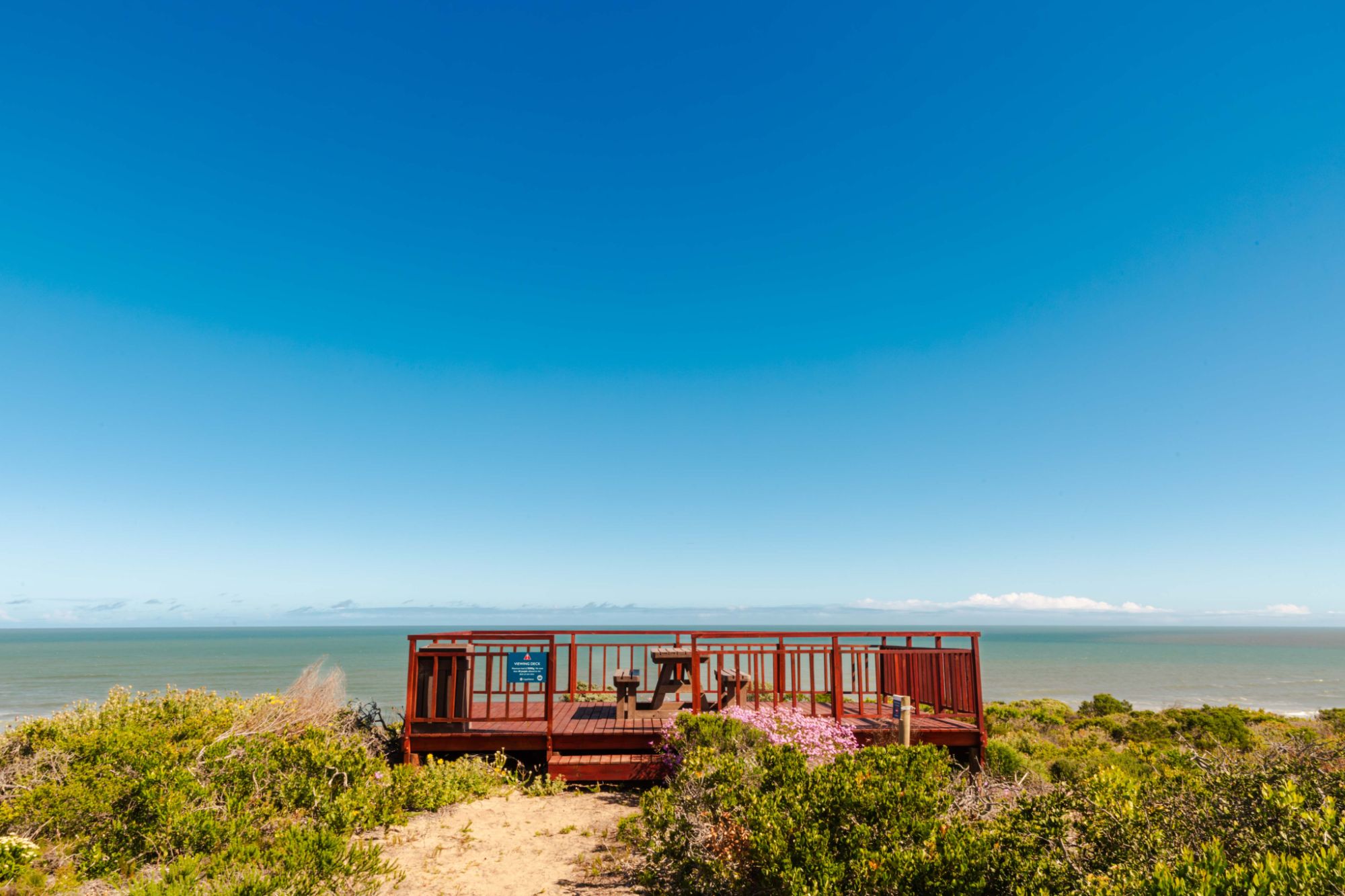
Geelkrans Nature Reserve: a Coastal Haven in Stilbaai
Nestled on the eastern side of Stilbaai, Geelkrans Nature Reserve beckons travellers with its breathtaking coastal beauty. Established in 1977, this 440-hectare sanctuary is a natural wonderland, bordering the core conservation area of the Stilbaai Marine Protected Area along its coastal boundary. Adventurous souls can explore the reserve via coastal hikes, revelling in dynamic sandstone cliffs and extensive intertidal zones. Scenic wooden decks provide perfect spots for picnics and taking in the picturesque views. In winter, the reserve is adorned with blombos and boegoe flowers, while summer offers fantastic family snorkelling opportunities. Don't miss the chance to immerse yourself in the wonders of Geelkrans Nature Reserve.


Activities: Bird watching, whale watching, hiking, walking, picnicking, swimming, and snorkelling.
Easy to use trail maps for these hiking trails created by Forge can be downloaded here.
Help us to protect nature
To protect the tranquillity of Geelkrans Nature Reserve, we kindly request visitors to refrain from driving beyond the designated parking area. In the spirit of conserving our natural wonders, we urge guests to be mindful of nesting birds and stick to the marked paths, ensuring the fragile vegetation remains undisturbed. Moreover, for a truly magical beach experience, please keep in mind that access is possible during low or receding tides. By embracing these responsible tourism practices, you play a crucial role in safeguarding this coastal gem. Please note NO ANGLING is allowed as this is part of the Stilbaai Marine Protected Area.
Read more about this coastal gem here.






